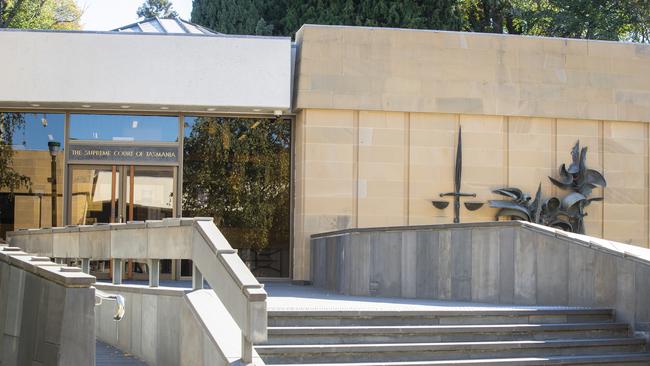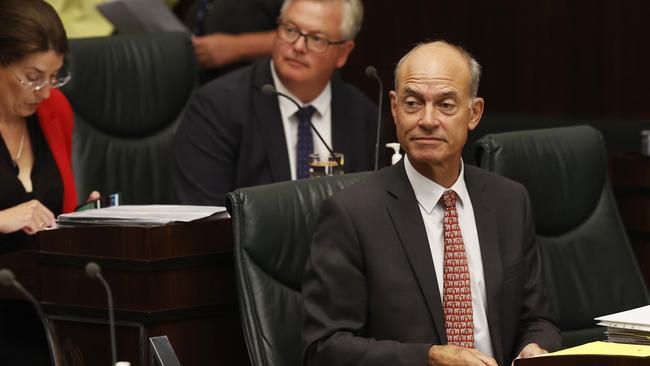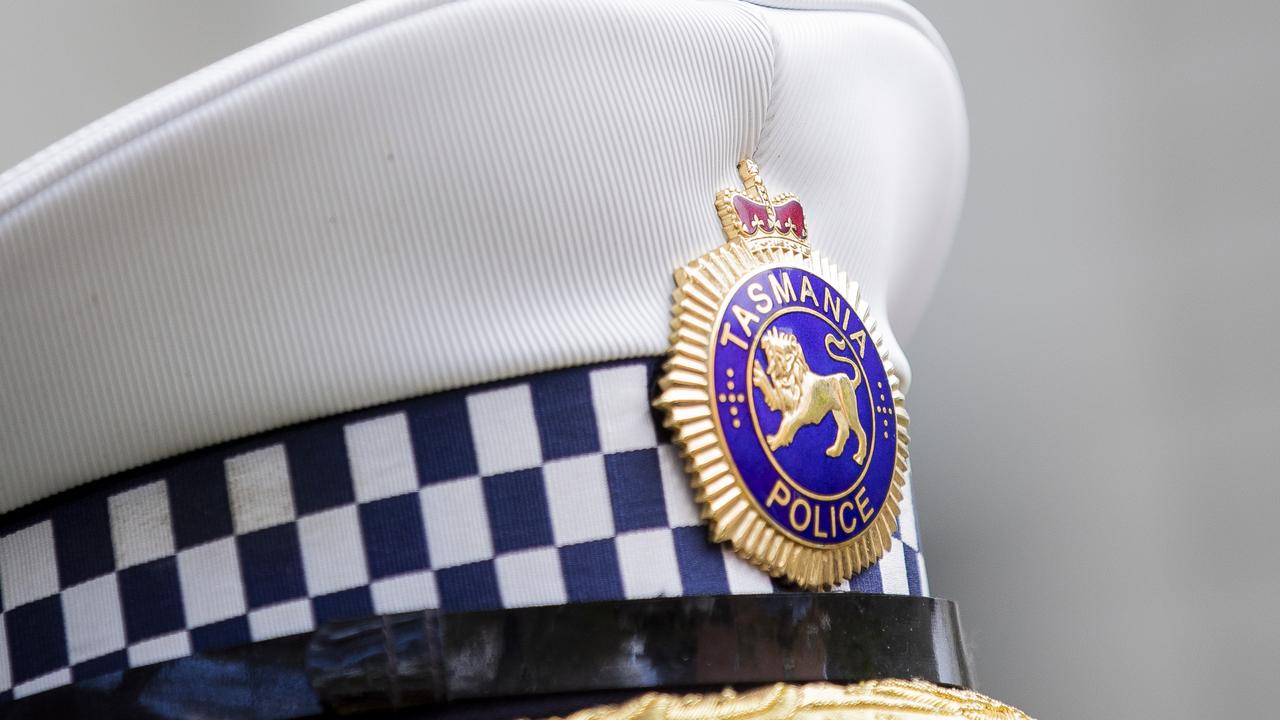Legal limbo: Tasmanian justice sector mulls united solution to defendants’ dilemma
Those accused of crimes in Tasmania are making four times as many court appearances as mainlanders, new data reveals. A respected lawyer’s call to speed up time-costly proceedings.

Police & Courts
Don't miss out on the headlines from Police & Courts. Followed categories will be added to My News.
The state government has been urged to introduce legislative limits on the duration of pre-trial criminal proceedings, amid revelations Tasmanians defendants are making four times as many Supreme Court appearances per case as their mainland counterparts.
As Australian Lawyers Alliance spokesperson, Greg Barns SC, called for new laws that would obligate authorities to meet strict deadlines, Attorney-General Guy Barnett revealed the government was considering passing responsibility for managing and listing criminal cases from the Director of Public Prosecutions to the Associate Justice.
Recent data released by the Productivity Commission indicated that in the last financial year, Tasmanian Supreme Court defendants made an average of 16.7 appearances before their matter was finalised.
This compared with 3.5 appearances defendants in Western Australia, 3.7 for Queensland, and 4.6 in South Australia.

Mr Barns said it was unacceptable for any person charged with a criminal offence to have to attend the Supreme Court on any more than a handful of occasions.
“There is no incentive on the state to make sure that matters are ready to proceed in a timely fashion,” Mr Barns said.
“It is time that we consider cost orders against the state if persons have to attend court on numerous occasions.
“People often give up half a day’s work, get their children cared for, and travel long distances to attend court.
“And for what is often only a two-minute appearance, which is appalling.
“It is also patently unfair not only to the accused person, but also alleged victims who have to wait for their trial to be heard, which can sometimes be years.
“Criminal procedure legislation would require police and prosecutors to meet strict deadlines, and we ought to give consideration to cost orders.”
Law Society of Tasmania president, Will Justo, said a general shortage of lawyers in Tasmania – on both sides of the bar table – meant the solution to what was obviously a serious issue would only be found through collaboration between a range of justice stakeholders.
“You can set time limits on police and prosecutors, but there has got to be enough qualified people to do that job,” Mr Justo said.
“This is a complicated issue, which will require a holistic approach to fix.
“To some extent it is a matter of proper resourcing, but you actually have to find the people attracted to do the work, because it’s a hard job and people are human.
“I don’t think any of this is going to be fixed overnight, but I do know that everyone’s really committed to achieving a better outcome.”

Attorney-General and Minister for Justice, Mr Barnett, said that because delays in police disclosure had been identified as a contributing factor to the number of adjournments in Tasmanian criminal cases, Tasmania Police had allocated additional staffing to the Southern Prosecution disclosure area over the recent few months to assist with the backlog of work.
Minister Barnett said the new Justice Connect case management system, and amendments to the Magistrates Court Act 2019, will also improve disclosure time frames.
“This issue has been discussed as part of a regular Justice Forum that brings together stakeholders across the justice system, including courts, the legal profession and Tasmania Police,” he said.
“Associate Judge Daly was sworn in on 29 April 2024 and is the first Associate Judge to be tasked with case management of criminal matters.
“This will enable the Associate Judge to actively case-manage criminal cases as soon as they are committed to the Supreme Court.
“The government is also continuing to explore the transfer of the management and listing of criminal matters to the Associate Judge from the Office of the Director of Public Prosecutions.”





